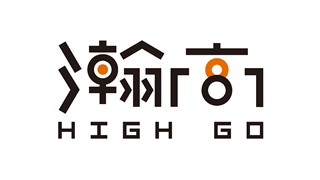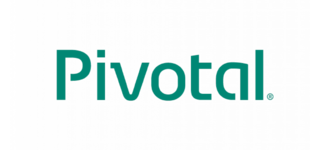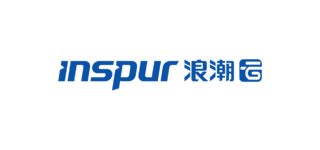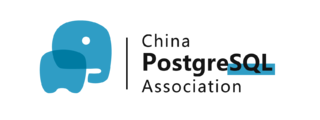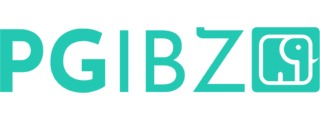
Beijing 2019
PostgresConf is the world's largest PostgreSQL conference series, and it is now in China. China PostgreSQL Branch and the PostgresConf organization in the United States, in 2019, has successfully held two major domestic PG ecological conferences - PostgreSQL Open officially entered the international PostgresConf conference sequence this year, and officially changed its name to PostgresConf.CHN. The conference was jointly organized by China OSS Promotion Union(COPU), China PostgreSQL Association, China PostgreSQL Community and PGCentral Foundation. The organization of PostgresConf CHN will further strengthen and strengthen the territory of the PostgresConf global series of conferences and promote the integration of Chinese PG forces into the global PG ecosystem.
Some of our speakers
Conference Highlights
Speech by the officer of the Ministry of Industry and Information Technology
Officer representative speech from the government. Emphasize the importance of the Open-source Postgres
JSON PATH
PostgreSQL is the first relational database which recognized the need of non-atomic data types to support developers of applications from science to Web. Jsonb in Postgres is the attractive feature for modern application developers, who want to work with json documents without sacrificing a strong consistency and ability to use all the power of proven relational technology. Finally, SQL world has recognized the NoSQL and released the new SQL-2016 standard, which includes specification of...
A Deep Dive into PostgreSQL Indexing
Indexes are a basic feature of relational databases, and PostgreSQL offers a rich collection of options to developers and designers. To take advantage of these fully, users need to understand the basic concept of indexes, to be able to compare the different index types and how they apply to different application scenarios. Only then can you make an informed decision about your database index strategy and design. One thing is for sure: not all indexes are appropriate for all circumstances,...
Tune your Linux Box, not just PostgreSQL
PostgreSQL is one of the leading open-source databases. Out of the box, the default PostgreSQL configuration is not tuned for any particular workload. The default configuration is designed in such a way that PostgreSQL can run on any system using minimum resources. Consequently, a default installation of PostgreSQL does not give optimum performance on high-performance machine because it is set up to use all available resources. PostgreSQL provides mechanisms that allow you to tune your...
Implementation of distributed aggregation in Greenplum
The presentation includes the principle of aggregation, the implementation of multi-stage aggregation on greenplum. And how greenplum implement grouping sets. This presentation will delve into how to implement efficient aggregation in a distributed environment, as well as implementations in the query optimizer and executor. The slides link: https://docs.google.com/presentation/d/1nYiU8-Z2omzmeYJvh1EznAPk-KnMfXZNIrBbt2JICfo/edit?usp=sharing
All about PostgreSQL Replication
Replication is the process of copying and maintaining database objects, such as tables, in multiple databases that make up a distributed database system. There are various benefits of replication which makes it an important component of any enterprise level database deployment. The main drivers for replication are high availability, performance, load balancing and others. PostgreSQL offers quite a many replication options with each having its own pros and cons. In this talk I will try to...
PostgreSQL HA with Pgpool-II and whats been happening in Pgpool-II lately....
Pgpool-II has been around to complement PostgreSQL over a decade and provides many features like connection pooling, failover, query caching, load balancing, and HA. High Availability (HA) is very critical to most enterprise application, the clients needs the ability to automatically reconnect with a secondary node when the master nodes goes down. This is where Pgpool-II watchdog feature comes in, the core feature of Pgpool-II provides HA by eliminating the SPOF is the Watchdog. This...
Deep dive on SQL codes while migrating from enterprise databases to PostgreSQL
We have quite a lot of tools and services available in the market to migrate applications and databases from enterprise databases (like Oracle, SQLServer, Sybase, etc) to open-source databases. However, many a times, these tools do not do the complete code conversion compatible with the target open source. Manual intervention is necessary and the procedures and functions need to be reviewed line by line and rewritten to provide the same functionality. If database migration is done right,...
PostgreSQL with In-Memory Computing: Faster Transactions and Analytics
Learn how to boost performance 10x and scale to over million transactions per second with in-memory computing. It will be shown how to add speed and scale to your PostgresQL-based applications, APIs and analytics for different use cases. We will discuss when each option makes sense, as well as how to evolve your architecture over time to add the speed, scale, agility and new technologies needed for digital transformation and other initiatives. By the end of this session, you will...
Program
Beijing has the most awesome program ever! See rock-star speakers cover the topics of
English Speaker Track
A Deep Dive into PostgreSQL Indexing by Dr. Ibrar Ahmed
Tune your Linux Box, not just PostgreSQL by Dr. Ibrar Ahmed
Join Heterogeneous Databases using PostgreSQL Foreign Data Wrappers by Dr. Ibrar Ahmed
All about PostgreSQL Replication by Asif Rehman
PostgreSQL v12: New feature and migration considerations by Joshua Drake
Open Source - The Next Step by Michael Meskes
The future of Postgres Sharding by Ahsan Hadi
Transparent data encryption in PostgreSQL and Integration with Key management service by Insung Moon
JSON PATH by Oleg Bartunov
PostgreSQL HA with Pgpool-II and whats been happening in Pgpool-II lately.... by Muhammad Usama
PostgreSQL with In-Memory Computing: Faster Transactions and Analytics by Denis Magda
Deep dive on SQL codes while migrating from enterprise databases to PostgreSQL by John Jeevakumar
Main
PostgreSQL Association Meeting by Jian Miao
Dialogue program by Grant Zhou
Registration by PostgresConf Organizers
Speech by the officer of the Ministry of Industry and Information Technology by Officer Representative
PostgresConf Beijing Opening Ceremony by PostgresConf Organizers
Open Source Topic by Guangnan Ni
PG Annual Technology Awards Ceremony by PostgresConf Organizers
Lunch Break by PostgresConf Organizers
Alibaba Cloud & Database by Fei Fei Li
Postgres: The World's Database by Joshua D. Drake
PostgreSQL Best Practices
Kernel Analysis of PostgreSQL Parser by daming shao
Oracle migration to PostgreSQL case sharing by Xian Wen Zhu
Time machine for backup on PG Cloud by Yong Hui Shi
GIS - PostgreSQL Applications in SuperMap System by Shao Jun Li
PostgreSQL Application in IBM Cognitive Computing and Data Science Services by Yong Ming Wei
PostgreSQL execution plan exploration by Yun Jiang
Oracle Database and Application Migration pg Best Practices by Xiu Tang
HugeGraph graph database technology and PostgreSQL as its storage by Zhang Mei Li
Implementation of distributed aggregation in Greenplum by Chen Jinbao
Application of Agricultural Insurance Big Data Technology Based on Postgis by Yang Lu
Ecological development of PG and PG Commercial
PostgreSQL in Inspur by Lei Jun Hu
AsiaInfo AISWare AntDB enables enterprise digitization by Ming Jun Jiang
PG application practice in e-government industry by Sheng Xi Zhang
Open source software compliance discussion by Ning Zhen Li
Financial Industry Distributed Database Test Observation by Peng Wei Ma
Dancing with Elephants: Data Security Audit by Peng Li
Build Greenplum's low latency data pipeline by Yang Li
POLARDB DBA Magic - Performance Insight by Yi Lin
TRAINING
Deep PostgreSQL 11 System Training Day2 by Zheng Zhong Zhou
Deep PostgreSQL 11 System Training Day1 by Zheng Zhong Zhou
PG High Availability Training by Bo Wei
PG Systematic Basic Training Day1 by Xian Wen Zhu
PG Systematic Basic Training Day2 by Xian Wen Zhu
Where to stay in Beijing
We recommend these accommodations for your visit.



